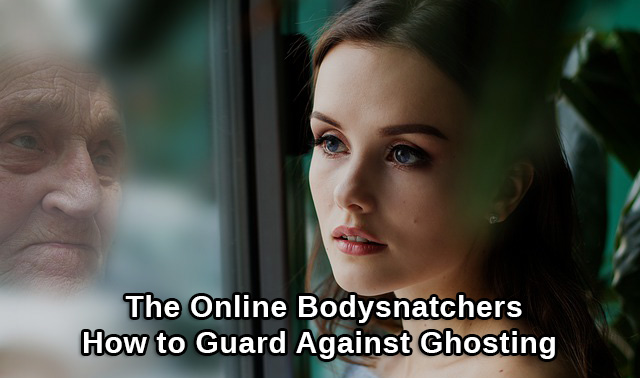
Identity theft is common, although in most cases it’s the identity of a living, breathing person that gets hijacked for personal or financial gain. It seems incredible that there are online bodysnatchers and that we must guard against the ghosting of a deceased person’s identity.
Some cases of identity theft involve the take-over of a deceased identity instead and can see fraudulent loan applications, illegal credit, tax fraud and other scams involving impersonation. It’s called “ghosting” and the impersonation of deceased identities on social media is becoming increasingly common.
Related reading: What Is Identity Theft?
Here’s how to spot the identity theft of a deceased friend or relative and what can be done to stop it.
Why Ghosting Works
There are a few reasons why ghosting is chosen as the form of identity theft instead of opting for a live identity instead.
- Fewer people check up on deceased identities and old profiles than they do new, live ones. Illicit activity and duplicate profiles are less likely to be spotted this way.
- Stagnant, unused accounts can be hacked or duplicated, often unnoticed, and used to impersonate an identity (and extort details or money) online.
- Taking over a deceased identity can offer scammers a “complete” identity instead of having to invent one or go digging for details.
- Death records are easier to search, and thousands of social media profiles are inactive and sitting there for a scammer’s taking.
- Sometimes a deceased person’s details will remain on systems like social security: With nobody checking up, these details can be manipulated for access to more under the false ID.
Ways Ghosting Can Take Place

A ghost can do a few different things with the identity they are impersonating depending on how much access to detail they have.
- Transact on Bank Accounts: Where a deceased person’s bank accounts are never closed or queried, some details might still hang in the balance, and a recently deceased person’s accounts might be used to transact. Banks should always be informed as soon as a client has passed away.
- Apply for Credit or Accounts: Credit and other account applications under a deceased person’s identity might be harder for the scammer to pull off, but if they have access to enough details, false credit applications could come streaming in.
- Scam Through Social Media: Impersonation is by far the easiest form of identity theft: Profiles can be duplicated or cloned, and this information can be used to extort money under a false identity – usually from people who didn’t know the original deceased. Most people put more than enough viable information on social media for an aspiring scammer to pull this off.
Related reading: Identity Theft Fraud Some Common Methods Used
Important Documents After Death
In most parts of the world, a death certificate is issued in the event of someone’s death: This is a vital document that proves the death of a specific person – and should be guarded in any event where you need to prove that this person passed on.
Death certificates are usually required when dealing with most of the deceased person’s affairs, including closing bank accounts or memorializing social media accounts.
Any instances of identity theft are easy to prove to authorities in the event of a dispute, but only if you have a death certificate in your possession.
Related reading: 5 Ways To Guard Against ID Theft After A Loved One Dies
Why You Should Memorialize Social Media Accounts
Social media accounts that stay open and unused with a lot of private information (especially photographs) are a goldmine for scammers. These are easy to grab information from and duplicate – sometimes even with a false name to make them even harder to spot.
There are several ways to secure social media accounts once someone has passed on.
Some sites, like Facebook, offer a memorial option for pages that clearly indicates the profile as no longer active and limits the access to some of the information.
Other websites without this option will usually allow for you to request for an account closure (and the download of information like photographs from the profile) if you have the right documents to do it.
Related reading: Identity Theft Prevention Taking Steps to Protect Yourself
How to Catch Duplicate Accounts

Account duplication is common: This is where scammers make secondary accounts, ones that look entirely legit, and use it for further scams like extorting money from others.
It can be hard to catch where scammers do their research well enough to block anyone who knew the deceased’s original account so that they don’t see it.
Catching duplicate accounts can be done with “reverse image searches” that look for any online appearances of the same image. It can also be done by doing regular checks on the deceased person’s name.
Related reading: Reporting Identity Theft Must Be Done as Soon as Possible
Closing Potential Ghosting Avenues

Other potential avenues for ghosting scammers can include any loose ends that aren’t properly closed off after someone’s death. While this can be traumatic for friends and family members, it’s a vital part of the memorial process in modern times.
Look for and report any suspicious activity that might appear on a person’s social media accounts after their death, contact creditors with the right paperwork to ensure that they are aware of the situation, memorialize any social media accounts that might remain and make sure that things like old phone numbers are safely switched off.
The Deceased and Passwords
It’s generally recommended that people keep their passwords safe, and most people do: But in the event of their death, what happens to their passwords and logins?
Passwords change regularly enough that it’s not worthwhile to keep a list of passwords anywhere (especially not in a will or testament) and it’s risky to write them down.
So, what do you do?
If you’re dealing with any online accounts for a deceased person, you might have to get in contact with an administrator or site owner from the website or forum. With the right documents, accounts can usually be memorialized, frozen or shut down.
Related reading: Cyber Safety: The Importance of Internet Protection
“I Suspect Ghosting, but I Can’t Find Anything!”
If you suspect that ghosting has taken place, but you can’t find any viable leads or proof to follow up on, the services of a professional private investigator can come in handy. Private investigators know how to follow specific leads – and in many cases when it comes to records, they have easier access and know exactly where to look.
Hiring a PI isn’t just for suspected affairs: They can also help you to pursue viable proof of fraud and tell you what to do with any proof from there once you have it.
Related reading: Online Safety Tips Keeping Yourself Safe Online
This is a contributor’s article by Alex J Coyne


